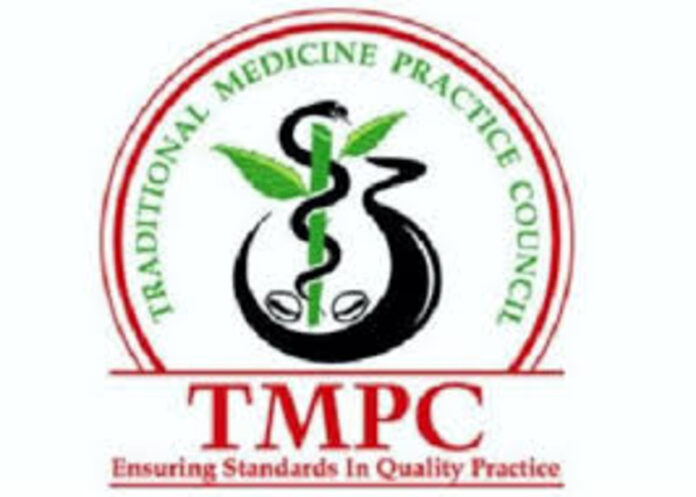The Traditional Medicine Practice Council (TMPC) has reaffirmed its mandate as the regulator for complementary and alternative medicine practice in Ghana.
TMPC has stated that since it intensified its routine monitoring exercises last year, it has encountered resistance from some practitioners, especially those in the Complementary/Alternative Medicine (CAM) industry.
These practitioners, according to TMPC, have argued that it cannot regulate their practices because they are not captured under the Traditional Medicine Practice (TMP) Act 2000 (Act 575).
However, TMPC, in a statement issued by the Head of Public Affairs, Numo Blafo III, explained, “The World Health Organization (WHO) defines Traditional Medicine as ‘the sum total of knowledge, skills, and practices based on the theories, beliefs, and experiences indigenous to different cultures that are used to maintain health, as well as to prevent, diagnose, improve or treat physical and mental illnesses and is a range of therapies that fall beyond the scope of conventional medicine.'”
It added, “The preamble to the TMP Act 2000 (Act 575) mandates the Council to, in part, ‘register practitioners and license practices, to regulate the preparation and sale of herbal medicines and to provide for related matters.'”
In light of this, the Council has informed the general public, especially CAM practitioners, that Section 38 of the TMP Act 2000 (Act 575) states that “The Minister shall have ministerial responsibility for the Council and may give to the Board directives of a general nature on the policy to be followed by the Council in the performance of its functions,” where the minister referred to is the Minister of Health.
“Subsequently, the late former Minister of Health, Hon. Major Courage E.K. Quarshigah (Rtd), issued a directive, ‘Policy and Administrative Guidelines on Complementary/Alternative Medicine Practice,’ in November 2008, mandating the TMPC to regulate the CAM industry in addition to its original mandate of regulating indigenous practices in Ghana.”
The statement listed CAM practices under regulation, including spas, gyms and wellness centers in hotels, nutritional health shops, organic and inorganic health shops, beauty and facial centers that offer skin/facial treatments using herbal/organic/inorganic products, massage centers, radionics practitioners, reflexology, and aromatherapy.
In view of these provisions in the TMP Act 2000 (Act 575) and the definition of Traditional Medicine by WHO, CAM practitioners in Ghana cannot extricate themselves from being regulated by the TMPC.
The Council has therefore warned that any CAM practitioner who refuses regulation contravenes Section 39 of the TMP Act 2000 (Act 575).
“The practitioner commits an offence and is liable on summary conviction to a fine not exceeding five hundred penalty units or to a term of imprisonment not exceeding two years, or to both the fine and the imprisonment. In the case of a continuing offence, there is a further fine of five penalty units for each day that the offence continues after written notice has been served on the offender by the Council, and the Court may order the temporary or permanent closure of the practice,” the statement cautioned.

